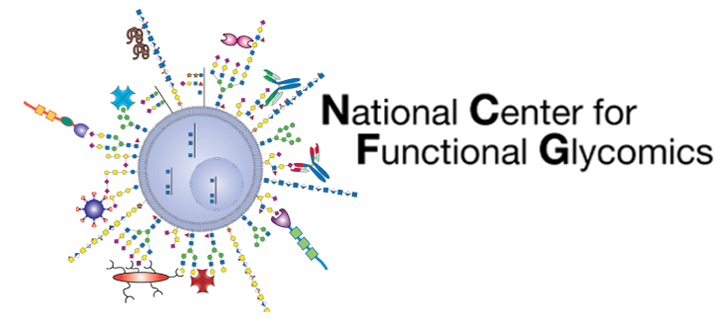Hamilton B, Wilson J, Shumakovich M, Fisher A, Brooks J, Pontes A, Naran R, Heiss C, Gao C, Kardish R, et al. A library of chemically defined human N-glycans synthesized from microbial oligosaccharide precursors. Sci Rep. 2017;7(1).
Abstract
Synthesis of homogenous glycans in quantitative yields represents a major bottleneck to the production of molecular tools for glycoscience, such as glycan microarrays, affinity resins, and reference standards. Here, we describe a combined biological/enzymatic synthesis that is capable of efficiently converting microbially-derived precursor oligosaccharides into structurally uniform human-type N-glycans. Unlike starting material obtained by chemical synthesis or direct isolation from natural sources, which can be time consuming and costly to generate, our approach involves precursors derived from renewable sources including wild-type Saccharomyces cerevisiae glycoproteins and lipid-linked oligosaccharides from glycoengineered Escherichia coli. Following deglycosylation of these biosynthetic precursors, the resulting microbial oligosaccharides are subjected to a greatly simplified purification scheme followed by structural remodeling using commercially available and recombinantly produced glycosyltransferases including key N-acetylglucosaminyltransferases (e.g., GnTI, GnTII, and GnTIV) involved in early remodeling of glycans in the mammalian glycosylation pathway. Using this approach, preparative quantities of hybrid and complex-type N-glycans including asymmetric multi-antennary structures were generated and subsequently used to develop a glycan microarray for high-throughput, fluorescence-based screening of glycan-binding proteins. Taken together, these results confirm our combined synthesis strategy as a new, user-friendly route for supplying chemically defined human glycans simply by combining biosynthetically-derived precursors with enzymatic remodeling.
Last updated on 03/06/2023
